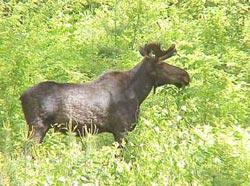In 2009 the initial 5 year certification expired and a comprehensive recertification audit was conducted and completed in August of 2009. The audit established two major Corrective Action Requests (CAR) to which the Bureau of Forestry responded. The CARs and Bureau response can be seen in the FSC Recertification Effort document. In 2010 the Forest Futures Visioning Process Technical Steering Committee report affirmed the value of forest certification for DCR forests and therefore we seek to renew certification in the future.
The goals of Forest Certification
Improve forest management practices on state forest lands. The bureau will manage these forests to provide the multiple benefits of soil, air and water protection; biodiversity; recreation; and an increasing supply of high value forest products. Forest product harvesting will be done in a socially responsible, economically viable and environmentally beneficial manner.
Identify opportunities for coordination of forest management among the different state agencies. State agencies will coordinate on eco-regional assessments, the designation of “forest reserves;” rare species and archaeological site policies; inventories; and forest type mapping.
Encourage improvements in private forest management, by providing examples and building market incentives for sustainable management practices. Since the state’s certification, one landowner cooperative, a timber company and two sawmills have also become certified.
Improve public understanding of and confidence in active forest management practices on state forest lands, by providing an independent, FSC-accredited audit of those practices.
Increase timber revenues through increasing sustainable forestry and access to new markets. Once management plans and other requirements of certification are in place, we may be able to increase the sustainable timber revenues through green products marketing while simultaneously meeting green certification sustainability conditions and requirements.
